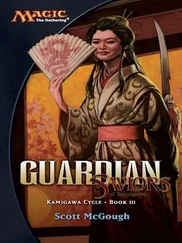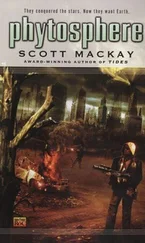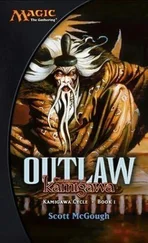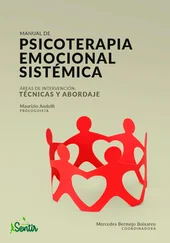Sujata Massey - Shimura Trouble
Здесь есть возможность читать онлайн «Sujata Massey - Shimura Trouble» весь текст электронной книги совершенно бесплатно (целиком полную версию без сокращений). В некоторых случаях можно слушать аудио, скачать через торрент в формате fb2 и присутствует краткое содержание. Жанр: Детектив, на английском языке. Описание произведения, (предисловие) а так же отзывы посетителей доступны на портале библиотеки ЛибКат.
- Название:Shimura Trouble
- Автор:
- Жанр:
- Год:неизвестен
- ISBN:нет данных
- Рейтинг книги:3 / 5. Голосов: 1
-
Избранное:Добавить в избранное
- Отзывы:
-
Ваша оценка:
- 60
- 1
- 2
- 3
- 4
- 5
Shimura Trouble: краткое содержание, описание и аннотация
Предлагаем к чтению аннотацию, описание, краткое содержание или предисловие (зависит от того, что написал сам автор книги «Shimura Trouble»). Если вы не нашли необходимую информацию о книге — напишите в комментариях, мы постараемся отыскать её.
Shimura Trouble — читать онлайн бесплатно полную книгу (весь текст) целиком
Ниже представлен текст книги, разбитый по страницам. Система сохранения места последней прочитанной страницы, позволяет с удобством читать онлайн бесплатно книгу «Shimura Trouble», без необходимости каждый раз заново искать на чём Вы остановились. Поставьте закладку, и сможете в любой момент перейти на страницу, на которой закончили чтение.
Интервал:
Закладка:
JP smiled. “Oh, don’t worry about that. This is not only the best place on earth to raise children, but also to grow old. But before the children come, what will you do to stay busy?”
He meant well, so I decided to ignore my slight irritation at his assumption that I would stop working forever if we had a child. “Well, I will concentrate of finding us a place to live first, which I gather is no easy feat on Oahu, and at the same time try to arrange some job interviews, maybe at the museums. I have more or less the right training and experience for museum work, but I always seem to be getting distracted.”
“Back up a moment. You’re talking about buying or renting a place before you’ve got the two salaries in place, and one of them will be at a non-profit? This island is expensive, if you haven’t noticed.”
“There are small apartments in the urban areas that aren’t that bad…but Michael and I really have become fond of the Leeward Side. It’s cheaper, sunnier, and it’s where the real people live.”
“I like the Leeward Side too, but you’ve got to remember to call it what we do: Ewa. And you may want to hold on to the mainland condominium. The more real estate you can afford to hold close, the better.”
“Spoken like a true robber baron,” I teased.
JP laughed. “I don’t drive much anymore, Rei, but if you have time this afternoon, I have a hankering to go Ewa.”
“Do you want to see the burned village?” I asked, not wanting to revisit the destruction Calvin had caused on this particular beautiful day.
“Actually, I don’t want to make myself sad on such an afternoon of good news. There’s a place I’d been thinking of showing you, but then you fell ill and I didn’t think you’d want to go anywhere alone with me. Now we can visit this place, but only if you aren’t in a rush.”
“Sure.” I thought for a minute, and then took the plunge. “And maybe-on the way back-we can stop and say hello to my Great-Uncle Yoshitsune. I think you should meet each other.”
JP nodded. “Yes, I’d like to see him, if he’ll see me. I agree that a conversation is long overdue.”
WE DEPARTED THE congestion of Honolulu freeways to H-1 West, where the dark skies gave way to a giant rainbow, and then plenty of sun-so much that I gave up on the ailing air-conditioner and asked Mr. Pierce if he didn’t mind my rolling down the windows. From the Ewa Beach exit, Mr. Pierce directed me to a smooth, limited-access road, bordered by housing developments, gas stations, and strip malls. Then we left the highway for a spur road that led to a narrow quiet street overhung with old, lush trees. On the right side was a one-story church built in the long, simple form of a barn; it looked quite old, but was painted a fresh white and had a sign that indicated a community pre-school was operating within. Across the street from the church stood the abandoned sugar mill, a monument of rusted metal and broken glass.
“That was the last mill in operation on our island,” Josiah Pierce said softly. “So many people cried when it closed.”
“Well, at least it’s not a ghost town around here. It looks as if people are still living in this area. The church has a school.”
“Yes, and take a right on the next street. You’ll see the village has residents, too.”
This was a plantation village? As I slowly drove the streets, I passed simple, box-shaped cottages similar to those I’d seen near Kainoa’s coffee shop. But in this neighborhood, smoothly paved roads ran alongside freshly painted cottages, and the gardens were full of healthy fruit trees, flowers, and vegetables.
“You’ve brought me to old houses that are living happily ever after. What a wonderful gift!” I beamed at him.
JP looked at me with satisfaction. “This neighborhood, Tenney Village, is a state-sponsored project-subsidized, so people of a certain income level were allowed to buy these 1920s plantation village homes at very reasonable rates.”
“It must have been difficult to get people to believe this could be done.”
“Yes, indeed. I was one of the naysayers, given the deplorable state of my own decrepit plantation villages, and the lack of interest from anyone except big money developers who wanted to raze them. But this village has something our older area by Kainani doesn’t: it’s close to the shopping in Waikele, and about twenty minutes from central Honolulu. Some people even commute by boat to their jobs at Pearl Harbor or downtown.”
I wanted to ask more questions about the development, but Josiah Pierce was looking at his watch and urging me back to the van. I got in again and said, “To my uncle’s house, then?”
“Yes. But there’s another stop just five minutes away that I’d like you to see.”
With the van windows rolled down to bring in the gentle trade winds, I cruised back on to the limited-access highway, and then followed Mr. Pierce’s directions to make a couple of lefts. Passing a ramshackle supermarket and a series of worn-looking apartment buildings, we came to a rough path of gravel and that led to a vintage cottage with peeling paint, and then another just like it.
“Another plantation village,” I said.
“Yes, and this village still belongs to my brother, Lindsay and me. It used to house the workers for a pineapple-growing and canning operation that folded in the thirties, when Hawaiian fruit became too much of a luxury for mainlanders.”
“Where’s the pineapple field?” I was confused, because this tiny housing area seemed hemmed in by modern development.
“That supermarket you just saw, plus the strip mall, plus the apartments-there were the fields and plant buildings! Now, let’s park and do some walking.”
I wandered a few paces behind my guide, spotting amid the tiny houses a longer plantation store building with faded lettering advertising groceries and beer. It was clearly vacant, with vines growing out of the glassless windows. A few of the houses in one cluster had trucks outside them, giving me the feeling someone was living there, perhaps illegally. A step up from the outdoors, I thought, remembering the homeless people I’d seen on Maile Beach.
These things didn’t seem to faze Josiah Pierce, who was walking determinedly ahead, as if he had somewhere in particular to go. I picked up my pace, and when he rounded a corner, I saw a Beach Access sign, and a straight row of slightly larger cottages.
Beach access meant ocean. As we drew closer, I saw flashes of blue behind the houses. “Great location,” I said. “Who was housed in this row?”
“This is the Portuguese village, so basically any family in that community with enough children for two or three bedrooms. Swimming and lying on the beach weren’t on the minds of many around here; they were too tired.”
He walked up to a door and tapped it lightly. It swung open, and he beckoned for me to follow him in.
“I don’t know if we should walk through the houses,” I called out. “The floors are likely to be rotten.”
“I’ll take that risk.” He looked over his shoulder at me. “If it’s any reassurance, I was out here fairly recently with my property manager. This house is the soundest one.”
I stepped a few feet further into the empty entry hall, noticing now what I should have seen earlier, the footprints in the dust. Yes, this place had been recently explored, and if I stepped in the places where other feet had been, chances were I wasn’t going through the floor.
To my left was a square room that I imagined had been the parlor. To the right were two doorways leading to smaller rooms-bedrooms. There was a crumpled-up, ancient newspaper in a corner of one of them. I saw the date, 1938, but I couldn’t read the Portuguese under it. The windows were large, and I saw traces of old electricity: the push-button light switches on the mottled walls, and old glass-shaded light fixtures and fans on the ceilings.
Читать дальшеИнтервал:
Закладка:
Похожие книги на «Shimura Trouble»
Представляем Вашему вниманию похожие книги на «Shimura Trouble» списком для выбора. Мы отобрали схожую по названию и смыслу литературу в надежде предоставить читателям больше вариантов отыскать новые, интересные, ещё непрочитанные произведения.
Обсуждение, отзывы о книге «Shimura Trouble» и просто собственные мнения читателей. Оставьте ваши комментарии, напишите, что Вы думаете о произведении, его смысле или главных героях. Укажите что конкретно понравилось, а что нет, и почему Вы так считаете.












